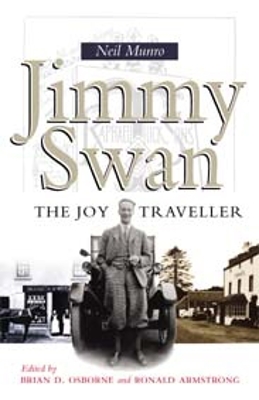Birlinn historical guides
2 total works
Neil Munro's reputation fluctuated wildly: an immensely successful novelist in the early years of the twentieth century, he was attacked in the 1920s by Hugh MacDiarmid for not addressing contemporary Highland issues. At his death in 1930 he was commonly referred to as the heir to Scott and Stevenson, but by the 1980s the novels which built that reputation were out of print and one incomplete edition of his Para Handy stories was all that remained available. Lacking a comprehensive anthology, readers have been unable to judge his work as a whole and have missed much of real delight and merit. That Vital Spark meets this need and presents a rich and varied selection of some of the best of Munro's light fiction, literary short stories, journalism, criticism, descriptive writing and poetry. Also included are two very early short stories in the thriller genre and the opening chapters of his unfinished last novel, The Search. His work as novelist, poet, journalist and critic can for the first time be properly assessed.
More than seventy per cent of the material in this collection is not otherwise available and over half of that seventy per cent has never been presented in book form at any time. This anthology appears at a time of growing academic and public interest in Munro's work. The editors have drawn on a wide variety of sources and provide full introductions to the texts and where necessary explanatory notes. Osborne and Armstrong edited the successful Birlinn editions of Munro's Erchie, Para Handy, and Jimmy Swan anthologies, which played a significant part in the Munro revival.
More than seventy per cent of the material in this collection is not otherwise available and over half of that seventy per cent has never been presented in book form at any time. This anthology appears at a time of growing academic and public interest in Munro's work. The editors have drawn on a wide variety of sources and provide full introductions to the texts and where necessary explanatory notes. Osborne and Armstrong edited the successful Birlinn editions of Munro's Erchie, Para Handy, and Jimmy Swan anthologies, which played a significant part in the Munro revival.
There are small paraffin-oil-lamp towns in many parts of the country for which Mr Swan is Fairy Godmother, perpetual Grand Plenipotentiary, and Deputy Providence. Half of his time in Glasgow is taken up with the execution of countless petty commissions for his rural customers and their friends, the selection and purchase of goods quite out of his drapery line. Jimmy Swan, the enigmatic commercial traveller, is another classic comic character from the pen of Neil Munro, the master Scottish humorist. The result of Swan's experiences is a wonderfully entertaining collection, allowing the reader a marvellous insight into daily life in the West of Scotland at the turn of the century. Each story is brimful of local and period detail and the editors have provided a full set of notes explaining those historical, cultural, biographical, linguistic and geographical references which may not be obvious to the twenty-first century reader - but which would have been very familiar from the news pages of their daily papers to the early twentieth-century reader.
In addition a full introduction is given, setting these Glasgow tales in their context and providing information about their author, Neil Munro.
In addition a full introduction is given, setting these Glasgow tales in their context and providing information about their author, Neil Munro.

